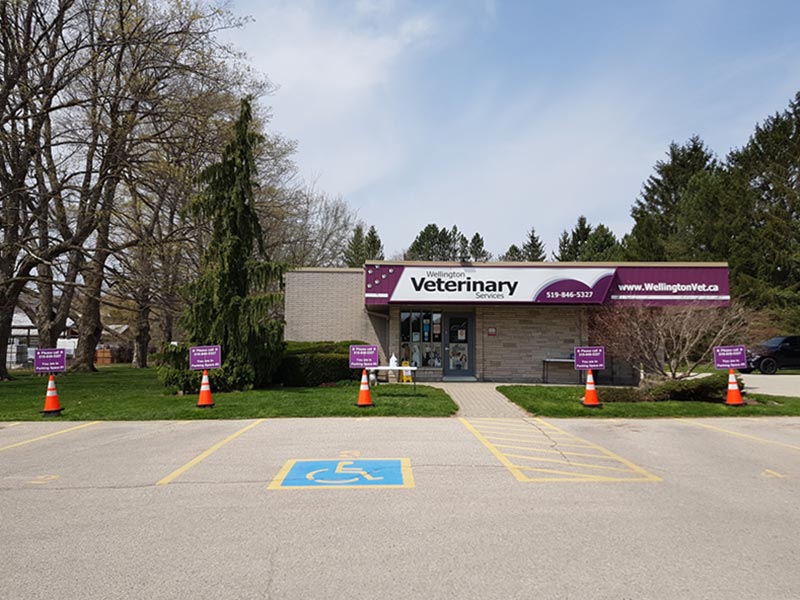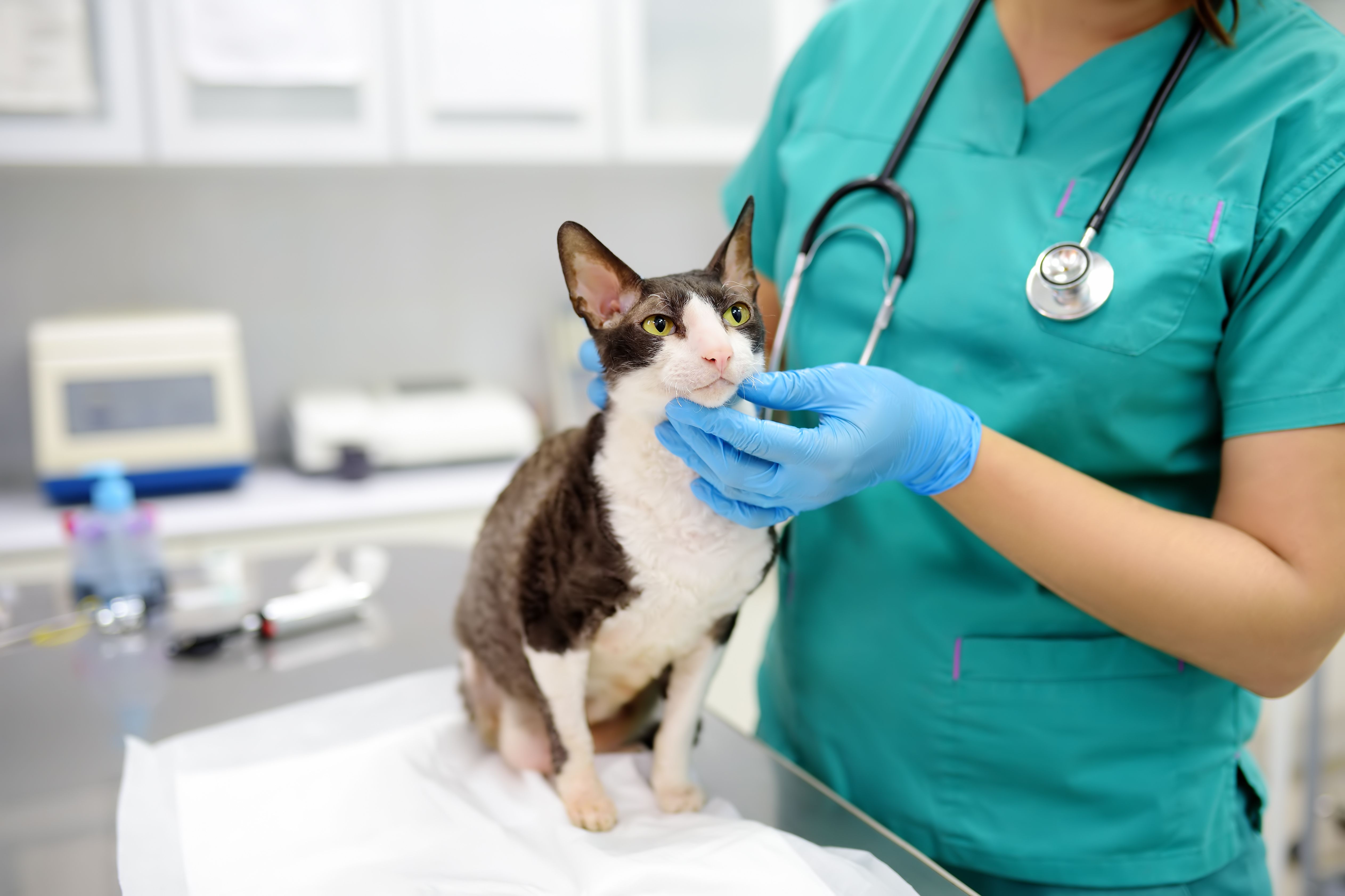Exploring the role of modern Veterinary medicine
Just How a Veterinary Specialty Hospital Can Cure Your Animal's Ailments With Advanced Techniques
Veterinary specialty hospitals play an essential role in dealing with complex health concerns in pet dogs. They make use of innovative methods and technologies that improve diagnosis and therapy. With access to specialized solutions, pet owners can find customized options for their pets' ailments. This raises vital inquiries regarding the details approaches used and the benefits they supply. Understanding these aspects can especially impact an animal's recovery trip.
Understanding the Role of Veterinary Specialty Hospitals
Although health care veterinarians offer essential solutions for pet health, veterinary specialty hospitals play a vital duty in resolving complicated medical conditions that require sophisticated diagnostics and therapy. These centers are furnished with specialized modern technology and knowledgeable professionals who concentrate on particular locations of vet medication, such as neurology, cardiology, and oncology.
Veterinary specialty hospitals assist in a joint method, commonly operating in combination with a pet's main vet to develop thorough treatment strategies. They give access to advanced imaging techniques, such as MRI and CT checks, which are not typically offered in standard clinics. Furthermore, these hospitals use extensive care devices for seriously sick pets, guaranteeing day-and-night monitoring and support.
Specialized Providers Offered by Veterinary Specialists
Veterinary specialists offer essential solutions that boost animal health care, specifically with advanced diagnostic imaging strategies. These tools make it possible for precise analyses of complicated medical problems, resulting in much more effective targeted therapy plans. By incorporating these specialized services, veterinary hospitals can considerably improve person end results and total wellness.
Advanced Diagnostic Imaging
Advanced analysis imaging plays a necessary function in modern-day veterinary medication, making it possible for professionals to obtain comprehensive understandings right into an animal's wellness. Strategies such as X-rays, ultrasound, calculated tomography (CT), and magnetic resonance imaging (MRI) enable veterinarians to envision interior frameworks without invasive procedures - Learn More. These advanced imaging techniques help in detecting a selection of problems, from fractures and tumors to organ abnormalities. By offering clear images, they boost the accuracy of analyses, which is crucial for effective treatment planning. In addition, specialized vet radiologists translate these images, making certain that subtle issues are not neglected. Ultimately, advanced diagnostic imaging is crucial in providing considerable care, as it permits early discovery and intervention in a pet's medical issues

Targeted Therapy Strategies
Targeted therapy plans are important for addressing the specific health and wellness needs of family pets, making certain that each pet obtains personalized treatment customized to its one-of-a-kind condition. Veterinary professionals establish these plans based upon detailed evaluations, consisting of innovative analysis imaging and research laboratory tests. By concentrating on the individual pet dog's diagnosis, lifestyle, age, and type, professionals can suggest reliable treatments, varying from medicine changes to medical interventions. These plans also incorporate follow-up treatment and keeping an eye on to track the animal's progression and make needed changes. This strategy advertises ideal end results and boosts the total lifestyle for pet dogs dealing with intricate health and wellness obstacles. Eventually, targeted treatment strategies represent a dedication to giving the highest possible requirement of veterinary care.
Advanced Diagnostic Techniques for Accurate Diagnoses
As pets deal with increasingly intricate wellness challenges, the assimilation of advanced diagnostic techniques has come to be important for attaining precise diagnoses. Veterinary specialty hospitals utilize state-of-the-art imaging modern technologies, such as MRI and CT scans, to picture internal frameworks with exceptional clearness. These methods permit veterinarians to recognize abnormalities that might not show up via standard techniques.
Along with imaging, progressed lab examinations, including genetic and biomarker analyses, supply critical insights right into underlying conditions. These examinations allow veterinarians to find conditions at earlier stages, assisting in timely treatment. The usage of endoscopy allows for direct visualization of internal organs, aiding in the medical diagnosis of respiratory and stomach issues.
Ingenious Therapy Options for Facility Problems
Cutting-edge therapy alternatives for complex conditions in family pets have become a critical emphasis within vet specialty hospitals. Making use of advanced analysis devices, these facilities improve their capability to recognize problems precisely and customize proper treatments. Veterinary. Additionally, the execution of minimally intrusive treatments and advanced rehab strategies uses pets a far better opportunity at healing with reduced pain
Advanced Diagnostic Tools
While the landscape of veterinary medicine remains to progress, sophisticated diagnostic devices have actually emerged as necessary possessions for addressing intricate conditions in pet dogs. These innovative technologies, including electronic imaging, ultrasound, and molecular diagnostics, allow veterinarians to get precise information concerning a pet dog's wellness condition rapidly. High-resolution imaging strategies can disclose complex information of internal frameworks, allowing exact analyses of injuries or diseases. Furthermore, hereditary screening offers understandings right into hereditary conditions, guiding tailored treatment plans. By leveraging these innovative diagnostic devices, veterinary specialty hospitals can boost their capacity to identify ailments that might have formerly gone undetected. Ultimately, these improvements contribute to improved results and enrich the overall high quality of treatment provided to cherished pets.
Minimally Intrusive Procedures
Developments in vet medication have led the way for minimally invasive procedures, which supply new treatment options for complex problems in animals. These cutting-edge strategies, such as laparoscopy and endoscopy, allow veterinarians to execute surgical treatments with smaller sized incisions, minimizing trauma and recovery time. By utilizing specialized video cameras and instruments, vets can identify and treat problems like lumps, intestinal disorders, and joint issues with precision - Learn More. This approach lessens pain and causes quicker healing, allowing animals to return to their regular activities quicker. Additionally, minimally intrusive procedures often lead to much less scarring and a lower threat of difficulties. As vet specialty hospitals adopt these advanced techniques, pet owners can feel more confident in their animals' treatment and total wellness
Advanced Rehabilitation Techniques
As veterinary medicine advances, advanced recovery strategies are coming to be vital for taking care of complicated problems in animals. These approaches incorporate a series of cutting-edge treatment choices, consisting of hydrotherapy, laser therapy, and physical treatment. Hydrotherapy utilizes water resistance to improve flexibility and enhance muscular tissues, valuable for animals recovering from surgical procedure or injury. Laser treatment promotes recovery by minimizing inflammation and discomfort, cultivating quicker recovery times. Physical therapy employs targeted exercises to boost toughness and flexibility, tailored to each family pet's particular needs - Veterinary. Furthermore, modalities like acupuncture and chiropractic care changes can better support rehabilitation by reducing pain and enhancing overall well-being. Veterinary specialty hospitals are significantly including these techniques, guaranteeing pet dogs get detailed care that attends to both physical and emotional recovery, inevitably boosting their top quality of life
The Significance of a Multidisciplinary Strategy
A multidisciplinary method in veterinary treatment substantially improves the therapy outcomes for animals, as it incorporates know-how from various specialties to resolve complicated health issues. This joint technique entails veterinarians, experts, specialists, and assistance staff interacting to formulate thorough treatment plans tailored per animal's one-of-a-kind needs. By more info incorporating expertise from fields such as surgical procedure, inner medication, oncology, and recovery, vets can recognize hidden problems that may or else go undetected.
Moreover, this technique promotes communication amongst staff member, guaranteeing that all elements of a family pet's health and wellness are considered. As an example, a pet dog recovering from surgery might gain from input from both a recovery and a specialist professional, bring about a more efficient healing process. Inevitably, a multidisciplinary strategy not only improves the quality of care yet also enhances the total health of pets, giving them with the best opportunity for a successful recovery and long-term wellness.
Cutting-Edge Technology in Veterinary Medication

Telemedicine has additionally become a vital source, enabling veterinarians to talk to pet proprietors from another location, consequently promoting timely interventions. Additionally, the assimilation of expert system in assessing clinical information adds to a lot more efficient therapy strategies customized to private needs. Cutting-edge lab devices enables quick blood analysis and pathogen discovery, fostering punctual medical reactions. As veterinary specialty hospitals continue to incorporate these improvements, they not only improve the top quality of treatment but also substantially boost the total health of animals.
Success Stories: Real-Life Instances of Pet Dog Recuperation
Many heartwarming success tales illustrate the impressive healings of pets treated at vet specialty hospitals. One such instance entailed Bella, a Golden Retriever diagnosed with an extreme orthopedic issue. After advanced medical intervention and recovery, Bella was not just able to stroll again but likewise to run happily in the park, much to her owners' joy.
One more motivating story attributes Max, a feline with persistent kidney disease. Via specialized nutritional management and ingenious treatments, Max's problem maintained, permitting him to regain his power and hunger. His proprietors were thrilled to see him return to his spirited self.
Luna, a Dachshund who endured a back injury, undertook advanced treatments, leading to an amazing recovery. These tales highlight the expertise and compassion located in veterinary specialty hospitals, showcasing their capability to recover wellness and happiness to precious pets and their households.
Frequently Asked Inquiries
What Should I Anticipate Throughout My Animal's Specialty Assessment?
During a specialty consultation, animal proprietors can expect a comprehensive exam, thorough case history conversations, diagnostic examinations, and customized treatment choices. The veterinary specialist will provide insights and suggestions for the pet dog's certain wellness demands.
Exactly How Can I Locate a Veterinary Specialty Hospital Near Me?
To locate a veterinary specialty hospital close by, one can use online online search engine, check neighborhood directories, or look for recommendations from main veterinarians. Additionally, pet owner forums can give important understandings and experiences concerning nearby facilities.
Are Specialty Solutions Covered by Pet Dog Insurance Policy?
Specialty services may be covered by animal insurance policy, but protection differs by plan. Proprietors need to very carefully examine their insurance coverage plan details and consult their provider to understand the level of insurance coverage for specialty vet services.
How Much Time Will My Pet dog's Treatment Take?

The period of an animal's treatment can differ significantly, usually varying from a few days to several weeks. Aspects influencing this timeline include the specific condition, treatment kind, and the animal's total health and reaction.
What Are the Prices Connected With Specialty Veterinary Care?
The costs connected with specialty vet care can vary widely, typically varying from hundreds to countless bucks. Variables influencing these expenses include the complexity of the problem, called for therapies, and analysis procedures needed for reliable treatment.
Veterinary specialty hospitals play an important duty in resolving intricate health and wellness issues in pets. Key care vets supply important services for pet health and wellness, veterinary specialty hospitals play an essential function in dealing with complex clinical problems that call for sophisticated diagnostics and treatment. Veterinary specialty hospitals assist in a collective approach, frequently working in combination with a pet's main veterinarian to create extensive care strategies. Ingenious therapy choices for complex conditions in pet dogs have arised as a vital focus within veterinary specialty hospitals. A multidisciplinary approach in vet treatment significantly enhances the therapy results for animals, as it integrates competence from various specializeds to attend to complex health problems.